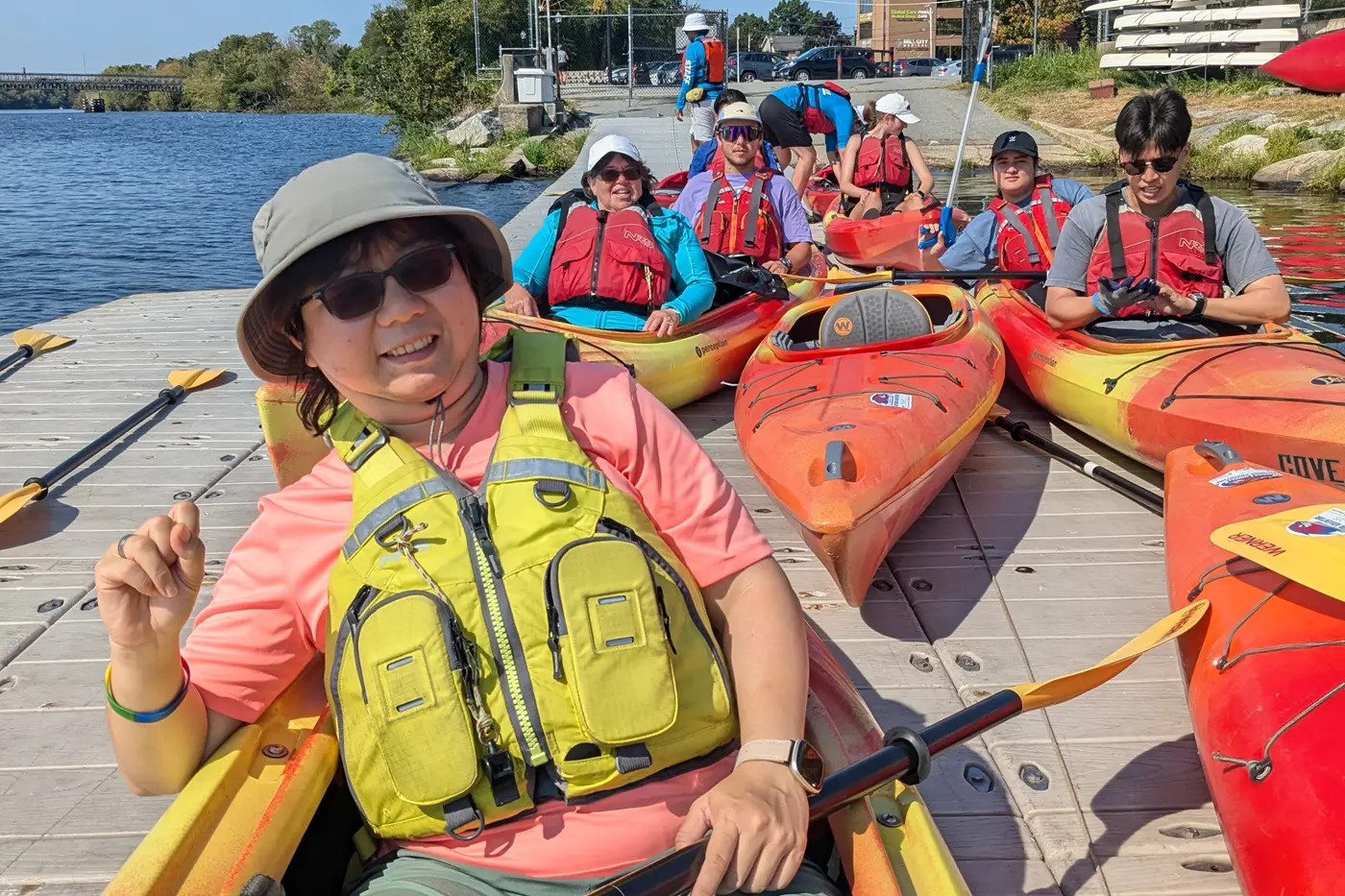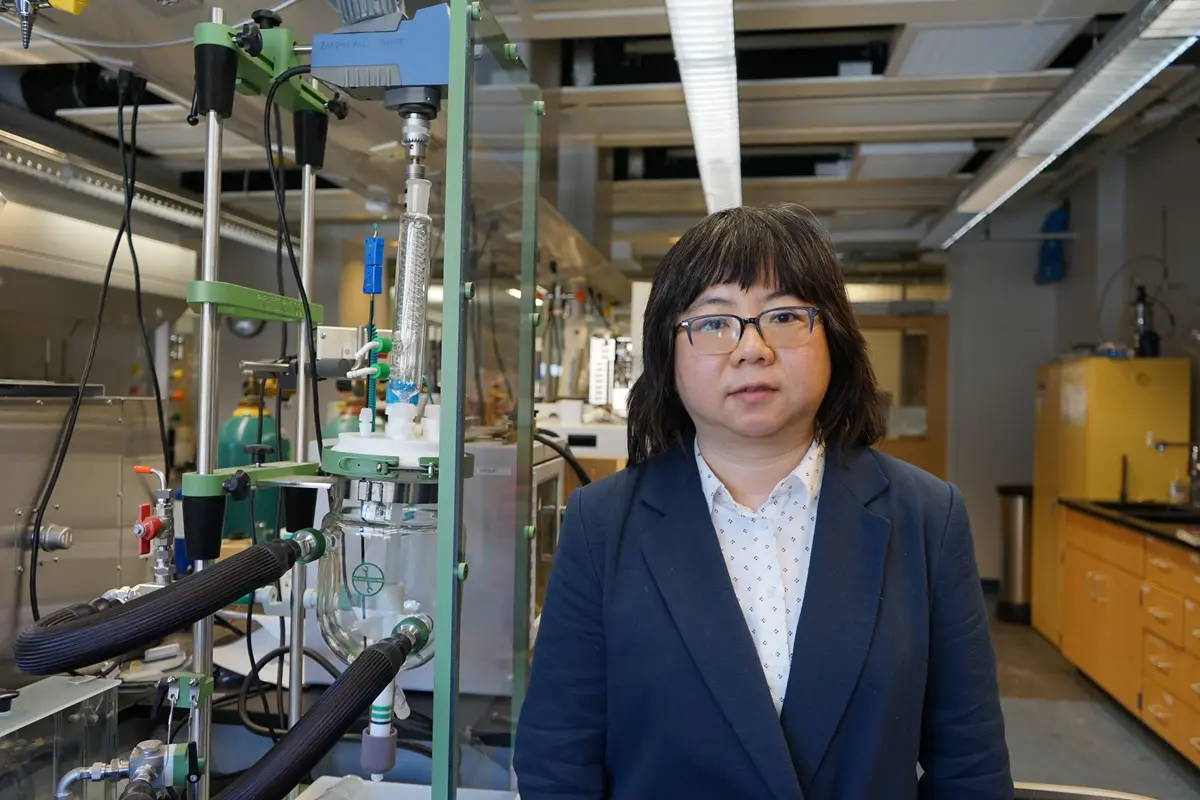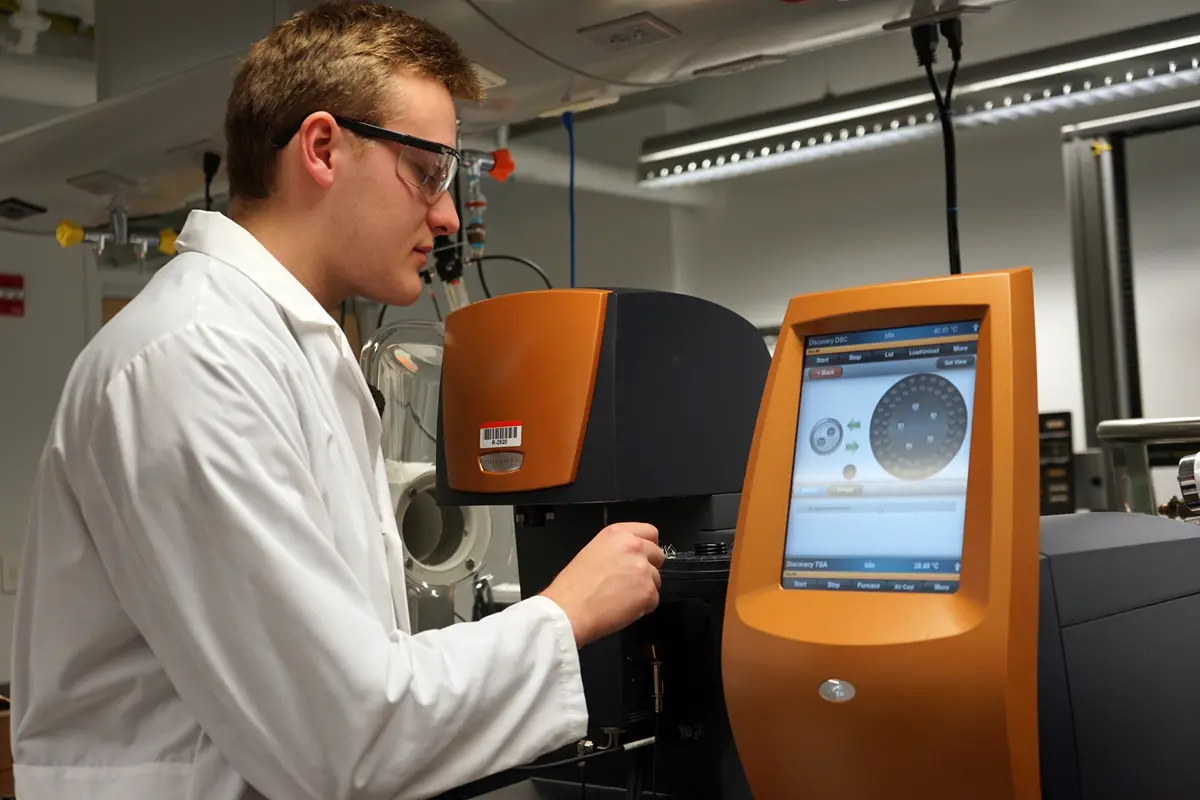 Image by courtesy
Image by courtesy
Plastics Engineering Assoc. Prof. Wan-Ting (Grace) Chen, left, seen here participating in a Merrimack River cleanup with her research team last fall, was awarded a $360,000 Early Career Proposal grant from the U.S. Army Research Office to study how freshwater biofilms affect the breakdown of plastics.
While there is an ocean of research on the environmental impacts of marine plastic pollution, less is known about plastics that accumulate in freshwater rivers and lakes.
Wan-Ting (Grace) Chen, an associate professor of plastics engineering, and her research team in the Francis College of Engineering are helping to fill that knowledge gap.
Chen was recently awarded a $360,000 Early Career Proposal grant from the U.S. Army Research Office to investigate how biofilms — the slimy layers of bacteria and microorganisms that grow on surfaces under water — affect the breakdown of plastic in freshwater environments.
The three-year study could help curb the formation of microplastics, which are fragments of plastic less than 5 millimeters in diameter that are becoming a growing health concern for humans.
“It’s important to know how microplastics affect the ecosystem and human health, but if we can prevent them in the first place, that would be awesome,” says Chen, who directs the Plastics & Environment Research Laboratory at UML, a top research institution with an R1 classification.
 Image by Ed Brennen
Image by Ed Brennen
"If we can prevent (microplastics) in the first place, that would be awesome," says Wan-Ting (Grace) Chen, an associate professor of plastics engineering.
The researchers will immerse plastic films in freshwater samples (taken from a canal in Lowell) and expose them to ultraviolet light in the lab to simulate environmental degradation. Using advanced microscopy and surface analysis techniques, they will track changes in the material’s properties over time.
The findings could lead to designs of new biofilm-resistant plastics or, conversely, they could help identify bacteria that can accelerate the degradation of plastic waste.
The project builds on the preliminary findings of work that was published last year in the Journal of Environmental Chemical Engineering — and that was supported by seed grant funding from UML and the Massachusetts Water Resources Research Center.
Hosterman is president of UML’s chapter of the Society of Plastics Engineers. The Atkinson, New Hampshire, native says it’s “crucial” for students in her major to understand the environmental impact of plastics.
 Image by Katharine Webster
Image by Katharine Webster
Plastics engineering alum Greg Reimonn '21 says working with Assoc. Prof. Wan-Ting (Grace) Chen on the microplastics research is "probably the main reason that I decided to pursue a career in science."
One of the co-authors on the paper, plastics engineering alum Greg Reimonn ’21, credits the project with setting him on a path to graduate school at the University of Michigan, where he is pursuing a Ph.D. in macromolecular science and engineering.
“This project was my first self-led experience as a researcher and is probably the main reason that I decided to pursue a career in science,” he says. “I had the opportunity to grow and develop technical skills in research. I also got to experience the positive culture in Prof. Chen’s lab and learn the soft skills that help research groups run smoothly.”
And, ultimately, he and his fellow researchers may help keep microplastics out of our rivers, canals, lakes and oceans.
